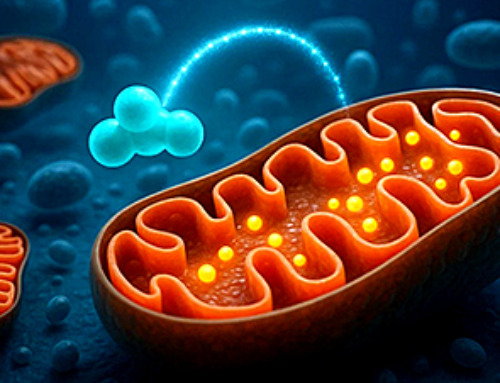Several antivirals, including remdesivir, Paxlovid, molnupiravir, and monoclonal antibodies like tixagevimab and cilgavimab, have been repurposed to treat the coronavirus disease 2019 (COVID-19) or received emergency use authorization (EUA). Antimalarial and antiparasitic drugs like ivermectin, hydroxychloroquine, and chloroquine have also been investigated for their potential activity against the severe acute respiratory syndrome coronavirus 2 (SARS-CoV-2).
A recent review published in the journal Acta Pharmacologica Sinica discusses the cardiovascular adverse effects associated with antiviral drugs used to treat COVID-19.
About the virus
SARS-CoV-2 is a single-stranded ribonucleic acid (RNA) virus enclosed in a protein envelope comprising the membrane, spike, and envelope proteins. Viral RNA is stored within the nucleocapsid, comprised of the nucleocapsid protein.
The SARS-CoV-2 spike protein recognizes and subsequently binds to the angiotensin-converting enzyme 2 (ACE2) receptor present on the surface of the host cell. The S1 subunit of the spike protein consists of an N-terminal domain (NTD) and receptor-binding domain (RBD).
RBD-ACE2 binding causes the S2 subunit to dissociate from the ACE2 molecule, which subsequently causes the virus to transition from a pre to post-fusion state. Thereafter, the virus and host cell membranes fuse together, thereby allowing viral entry into the cell.
ACE2 and cardiovascular adverse effects
ACE2 regulates the vasoactive effects of ACE, which converts angiotensin I to angiotensin II, a potent vasoconstrictor and pro-inflammatory agent. Angiotensin II induces hyperinflammation due to the dysregulated release of cytokines, leading to severe tissue damage and multi-organ failure, which is often characteristic of severe COVID-19.
Pre-pandemic antivirals and cardiovascular effects
Idoxuridine was the first antiviral approved in 1963 for feline herpesvirus-1 eye infections; since then, 37 antivirals have been approved to treat a wide range of infections caused by the human immunodeficiency virus (HIV), hepatitis B virus (HBV), cytomegalovirus (CMV), influenza virus, respiratory syncytial virus (RSV), and hepatitis C virus (HCV).
Among the drugs used to treat HIV include protease inhibitors like lopinavir/ritonavir, which increase lipid levels in the blood, liver, and heart, in addition to weakening heart pumping activity. Endothelial damage has also been observed, which may cause atherosclerosis with its cardiovascular sequelae. Interferon-α, which is used in the treatment of multiple viral infections and cancers, has also been associated with adverse cardiac effects.
Remdesivir
Remdesivir is a prodrug that converts to an analog of the nucleotide adenosine, thereby disrupting viral replication. The vasodilation activity of adenosine can induce the release of catecholamines like epinephrine, thereby increasing the risk of ventricular tachycardia, ventricular fibrillation, and atrial fibrillation.
When administered intravenously, remdesivir can trigger QT prolongation and the potentially deadly arrhythmia torsade de pointes. Thus, continuous heart monitoring is essential for COVID-19 patients being treated with remdesivir, especially those with pre-existing cardiac disease or electrolyte abnormalities.
Paxlovid
Paxlovid, which consists of nirmatrelvir and ritonavir, may cause bradycardia and sinus dysfunction. However, it remains unclear which component of Paxlovid is responsible and what mechanisms are involved in this adverse side effect.
The toxicity of Paxlovid, when combined with tacrolimus, an immunosuppressant, has been reported in several cases. Paxlovid may also increase the risk of bleeding when used in combination with ticagrelor, warfarin, or rivaroxaban.
Paxlovid may also interact with other drugs to cause skeletal muscle breakdown and myopathy.
Molnupiravir
Esterases in host plasma activate molnupiravir to its active antiviral nucleoside analog EIDD-1931. Molnupiravir can increase oxidant stress, which may cause tissue damage. However, like Paxlovid, the use of molnupiravir can reduce the risk of severe COVID-19, particularly among those with diabetes and patients 65 years of age and older.
Other drugs
Hydroxychloroquine (HCQ) acidifies intracellular endosomes and affects the viral life cycle at multiple stages. Its therapeutic effects may be synergistic with those of azithromycin.
Nevertheless, both HCQ and azithromycin can cause prolonged QTc or cardiac arrhythmias. Thus, the combination of these drugs may not be ideal for severe COVID-19 or patients at an increased risk of QT prolongation.
Ivermectin
Ivermectin inhibits interactions between the virus and host cell, thereby preventing nuclear transport of viral proteins. However, preclinical data suggests the accumulation of ivermectin in the heart and inhibition of potassium currents. Patients with COVID-19 who are treated with ivermectin should be monitored for arrhythmias or QT prolongation.
Antibodies
Both monoclonal antibodies (mAbs) and plasma have been used to treat COVID-19. Cardiac arrhythmias have been reported with mAb, particularly following treatment with tixagevimab or cilgavimab.
The combination of cilgavimab and tocilizumab may cause thromboembolic events. Hypertension is most commonly reported with mAbs like casirivimab and imdevimab, bamlanivimab alone or with etesevimab, and sotrovimab.
Conclusions
The potential cardiovascular side effects of COVID-19 therapeutics must be carefully considered before prescribing these agents to high-risk patients. Despite reported observations of cardiotoxicity, additional studies are needed to differentiate the cardiovascular effects of SARS-CoV-2 infection from those of antivirals.
Future antiviral drug development assisted with the newest artificial intelligence platform may improve the accuracy to predict the structures of biomolecules of antivirals and therefore to mitigate their associated cardiovascular adversities.”
- Chen, E., & Xi, L. (2024). Cardiovascular adverse effects of antiviral therapies for COVID-19: Evidence and plausible mechanisms. Acta Pharmacologica Sinica. doi:10.1038/s41401-024-01382-w.
News
Breakthrough Drug Restores Vision: Researchers Successfully Reverse Retinal Damage
Blocking the PROX1 protein allowed KAIST researchers to regenerate damaged retinas and restore vision in mice. Vision is one of the most important human senses, yet more than 300 million people around the world are at [...]
Differentiating cancerous and healthy cells through motion analysis
Researchers from Tokyo Metropolitan University have found that the motion of unlabeled cells can be used to tell whether they are cancerous or healthy. They observed malignant fibrosarcoma cells and [...]
This Tiny Cellular Gate Could Be the Key to Curing Cancer – And Regrowing Hair
After more than five decades of mystery, scientists have finally unveiled the detailed structure and function of a long-theorized molecular machine in our mitochondria — the mitochondrial pyruvate carrier. This microscopic gatekeeper controls how [...]
Unlocking Vision’s Secrets: Researchers Reveal 3D Structure of Key Eye Protein
Researchers have uncovered the 3D structure of RBP3, a key protein in vision, revealing how it transports retinoids and fatty acids and how its dysfunction may lead to retinal diseases. Proteins play a critical [...]
5 Key Facts About Nanoplastics and How They Affect the Human Body
Nanoplastics are typically defined as plastic particles smaller than 1000 nanometers. These particles are increasingly being detected in human tissues: they can bypass biological barriers, accumulate in organs, and may influence health in ways [...]
Measles Is Back: Doctors Warn of Dangerous Surge Across the U.S.
Parents are encouraged to contact their pediatrician if their child has been exposed to measles or is showing symptoms. Pediatric infectious disease experts are emphasizing the critical importance of measles vaccination, as the highly [...]
AI at the Speed of Light: How Silicon Photonics Are Reinventing Hardware
A cutting-edge AI acceleration platform powered by light rather than electricity could revolutionize how AI is trained and deployed. Using photonic integrated circuits made from advanced III-V semiconductors, researchers have developed a system that vastly [...]
A Grain of Brain, 523 Million Synapses, Most Complicated Neuroscience Experiment Ever Attempted
A team of over 150 scientists has achieved what once seemed impossible: a complete wiring and activity map of a tiny section of a mammalian brain. This feat, part of the MICrONS Project, rivals [...]
The Secret “Radar” Bacteria Use To Outsmart Their Enemies
A chemical radar allows bacteria to sense and eliminate predators. Investigating how microorganisms communicate deepens our understanding of the complex ecological interactions that shape our environment is an area of key focus for the [...]
Psychologists explore ethical issues associated with human-AI relationships
It's becoming increasingly commonplace for people to develop intimate, long-term relationships with artificial intelligence (AI) technologies. At their extreme, people have "married" their AI companions in non-legally binding ceremonies, and at least two people [...]
When You Lose Weight, Where Does It Actually Go?
Most health professionals lack a clear understanding of how body fat is lost, often subscribing to misconceptions like fat converting to energy or muscle. The truth is, fat is actually broken down into carbon [...]
How Everyday Plastics Quietly Turn Into DNA-Damaging Nanoparticles
The same unique structure that makes plastic so versatile also makes it susceptible to breaking down into harmful micro- and nanoscale particles. The world is saturated with trillions of microscopic and nanoscopic plastic particles, some smaller [...]
AI Outperforms Physicians in Real-World Urgent Care Decisions, Study Finds
The study, conducted at the virtual urgent care clinic Cedars-Sinai Connect in LA, compared recommendations given in about 500 visits of adult patients with relatively common symptoms – respiratory, urinary, eye, vaginal and dental. [...]
Challenging the Big Bang: A Multi-Singularity Origin for the Universe
In a study published in the journal Classical and Quantum Gravity, Dr. Richard Lieu, a physics professor at The University of Alabama in Huntsville (UAH), which is a part of The University of Alabama System, suggests that [...]
New drug restores vision by regenerating retinal nerves
Vision is one of the most crucial human senses, yet over 300 million people worldwide are at risk of vision loss due to various retinal diseases. While recent advancements in retinal disease treatments have [...]
Shingles vaccine cuts dementia risk by 20%, new study shows
A shingles shot may do more than prevent rash — it could help shield the aging brain from dementia, according to a landmark study using real-world data from the UK. A routine vaccine could [...]





















